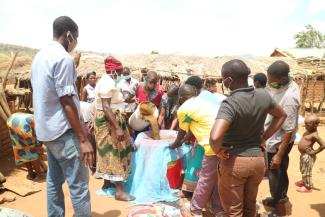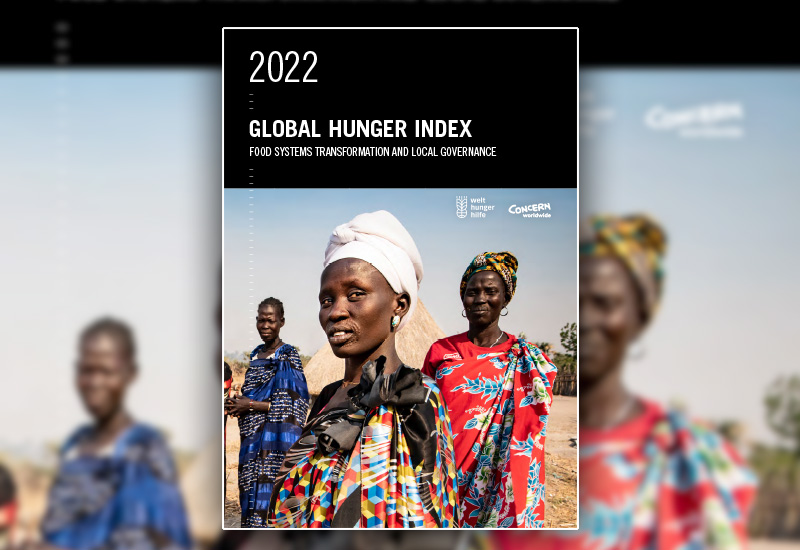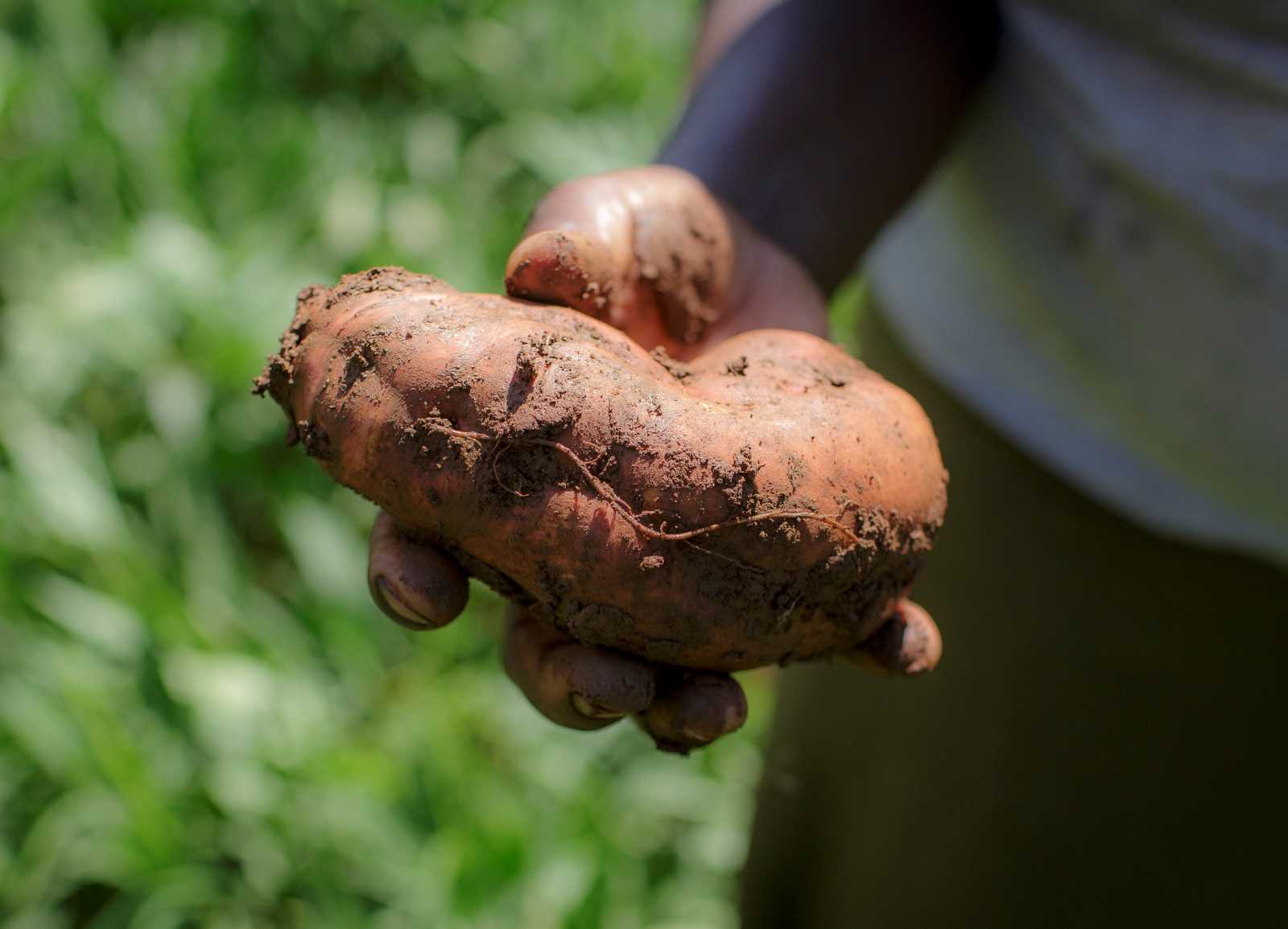Rural life
Activists raise awareness of ecosystem relevance in Malawi

Malawi’s great diversity of insects is more valuable than many farmers believe. Indeed, it is crucial for the sustainability of agriculture. The civil-society organisation Soil, Food and Healthy Community (SFHC) is raising awareness to improve matters. “We encourage farmers not to use pesticides,” says Laifolo Dakishoni of SFHC. “Applying chemicals kills all insects, including pollinators which are very beneficial.”
SFHC runs a research and training centre for farmers in Ekwendeni in the north of the country. “We try to make sure that farmers see the ecosystem as one thing,” Dakishoni explains. One message the centre conveys is that, to conserve an ecosystem, one must not destroy organisms that are a key part of it. Crop production depends on a broad variety of pollinators.
SFHC started working two decades ago. As Dakishoni reports, most farmers initially laughed off the assertion that some insects are good for their crops. SFHC involved them in participatory research, and they witnessed personally that pollinating insects make the crucial difference. wide spread“For instance, we covered pumpkin flowers with a net to keep insects away, and we left other flowers uncovered and accessible to insects,” the SFHC activist recalls. The results were obvious. The covered flowers simply died, but pumpkins grew where uncovered flowers had been pollinated.
The yields of Malawi’s farmers tend to be low, so poverty is widespread. In Dakishoni’s eyes, supposedly modern farming practices are part of the problem, not the solution, with the application of synthetic chemicals, for example, causing more harm than good. It is true, of course, that many insects are harmful, so it makes sense to control those pests. SFHC teaches village communities how to do so without resorting to environmentally harmful synthetic pesticides that the chemical industry sells to farmers (see box). For too long, agricultural biodiversity has been neglected, he says. The truth is that the diversity of crops and livestock makes farms able to cope with shocks. Pollination is only one of many relevant issues. Monocultures are vulnerable, while diversity makes systems resilient.
Landraces matter
Century after century, African farmers have been breeding cultivars that are closely adapted to their local environment. The so called “landraces” are marked by a great genetical diversity. Melaku Worede, the Ethiopian scholar who won the Right Livelihood Award in 1989, and other dissident scientists have argued for decades that they suit local needs (see the interview with him in D+C/E+Z 2012/03, p. 102). In the past, traditional village knowledge included what traditional cultivar suits what circumstances best. Some do not need much water and cope well with heat, others survive flooding or resist pests. The great diversity of landraces offers locally-adapted plants for all sorts of weather, soils and locations. As rural communities bred landraces systematically for centuries, they ensured their traditional crops stayed well adapted to the local environment and whatever changes it underwent.
It is ironic that commercial breeders use genetic information from landraces to keep optimising high-yield seed. Worede and other environment-minded scientists insist that high-tech farming is not viable without the genetic resources provided by traditional agriculture, while traditional farms do not necessarily need expensive high-tech input. While the cultivation of hybrids supported by intensive application of agrochemicals may result in higher yields per hectare, it is not sustainable. Moreover, it is unaffordable for most African smallholders.
Malawi is one of the most vulnerable countries impacted by climate change. In recent years, frequent droughts have seriously hurt food production and reduced food security. According to the 2021 Global Hunger Index, the country ranks 81st out of 116 countries.
SFHC wants to improve the situation. The organisation promotes agroecological farming practices to help communities increase soil fertility with an eye to sustaining nutritious and diverse diets.
The organisation currently works with more than 6000 farmers in more than 200 villages in northern and central Malawi. The farmers are encouraged to grow local varieties. SFHC also tells them to grow several different kinds of crops in one field. According to experts, the landraces are crucial in mitigating the effects of climate change. Their diversity enhances farms’ resilience.
A brighter future
In Ekwendeni, these farming techniques have helped to provide a much brighter future for regional farmers. Mwapi Mkandawire is one of them. Her farm is very diverse, she grows corn, soya and peanuts, all without the application of synthetic chemicals. She appreciates the results. “My household does not experience food insecurity, not even in the slightest,” she says proudly.
Moreover, smallholder farmers have generated income by selling surplus crops. Tapiwa Mkandawire has benefited from that kind of opportunity. He states: “Not only does my family have food on the table from the crops that I grow, but I am also able to sell some of the harvest.” In the past, he did not think that would ever be possible.
Once these farmers get trained by SFHC, they help their fellow farmers in their community by sharing what they have learned – such as the use of compost to cut the cost of expensive fertilisers and the use of organic pesticides. The general experience is that yields improve and farm families’ incomes rise.
Other civil-society organisations are making related efforts. For example, Slow Food International has set up more than 450 school and community gardens across the country, all of which use neither chemical pesticides nor fertilisers (see my contribution in the Focus section of D+C/E+Z e-paper 2020/11). The gardens serve training purposes with double goal of:
- promoting locally viable agriculture and
- ensuring people get a healthy and pleasing diet.
Nonetheless, Dakishoni says that preserving Malawi’s biodiversity is proving to be quite challenging. The reason is that government and civil-society activists are working at different levels without much coordination. “There is quite a number of organisations that are geared to preserve biodiversity in the country,” he says. If those involved knew more about what the others are doing, the impact would be greater, and policies could be implemented more effectively.
Rabson Kondowe is a journalist based in Blantyre, Malawi. He is interested in social development, health and business related stories.
kondowerabie@gmail.com













